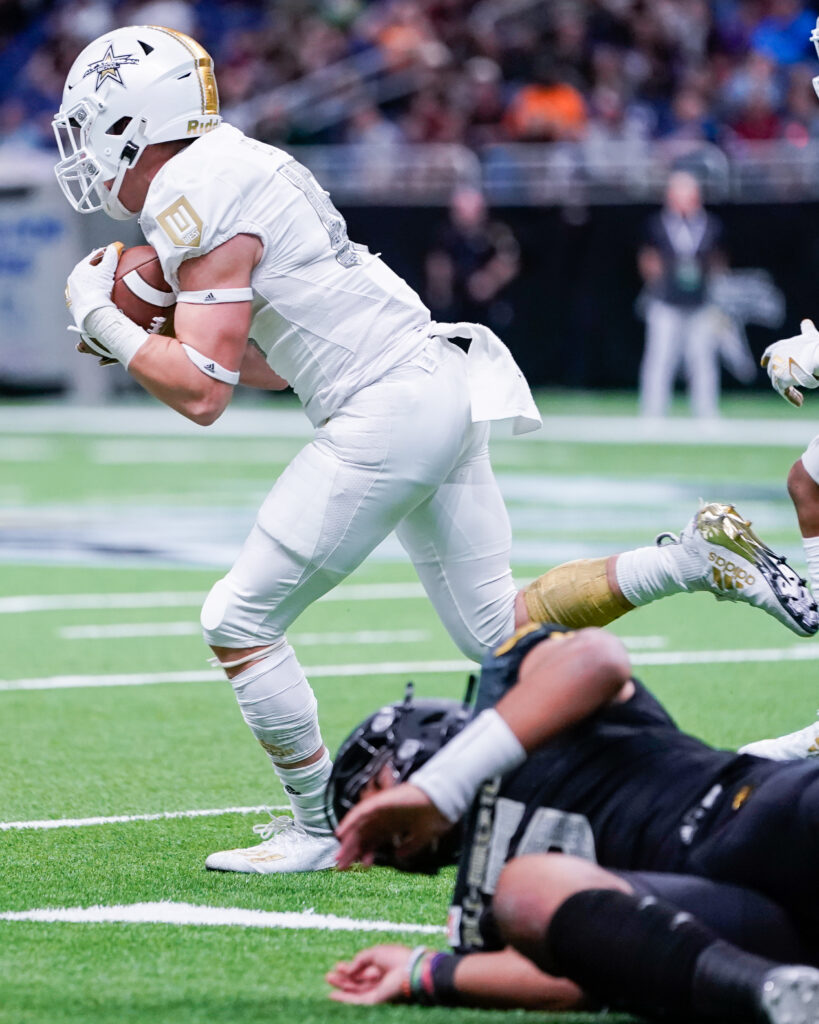Tackling the Odds: Overcoming Obstacles in High School Football


High school football is more than just a game; it’s a proving ground for young athletes, testing their resilience, discipline, and teamwork. While the thrill of Friday night lights can be exhilarating, the journey is often riddled with obstacles that challenge players both on and off the field. Overcoming these hurdles is crucial for personal growth and success in the sport. This article explores the common challenges high school football players face and offers insights into how they can tackle these obstacles head-on.
Balancing Academics and Athletics
For many high school football players, balancing academics and athletics is one of the first major challenges. The demands of practice, games, and travel can take a toll on a student-athlete’s ability to maintain their grades. The pressure to excel in both areas can be overwhelming, especially when the stakes are high, such as maintaining eligibility to play or securing a college scholarship.
To overcome this obstacle, time management is key. Players must learn to prioritize their tasks, setting aside specific times for studying and completing assignments. Some schools offer study halls or tutoring sessions for athletes, which can be a valuable resource. Communication with teachers and coaches is also essential. By letting them know about upcoming games or particularly demanding weeks, athletes can sometimes arrange for extensions or additional help, ensuring they don’t fall behind academically.
Dealing with Physical and Mental Fatigue
The physical demands of high school football are intense. Players often find themselves physically exhausted between practices, weight training, and games. But the mental strain can be just as taxing. The constant pressure to perform, fear of injury, and high expectations from coaches, teammates, and family can lead to burnout and anxiety.
To tackle physical and mental fatigue, recovery and self-care should be integral parts of a player’s routine. This includes proper nutrition, adequate sleep, and scheduled rest days. Mental health is equally important. Encouraging open discussions about stress and anxiety within the team can create a supportive environment. Access to counseling services or mental health resources can also be beneficial, helping players manage their emotions and maintain their mental well-being.
Navigating Team Dynamics and Leadership Challenges
Football is a team sport, and the dynamics within the team can significantly impact a player’s experience. Issues like lack of communication, conflicts between teammates, or unclear leadership can create a challenging environment. For some, stepping into leadership roles like team captain comes with challenges, including managing team expectations and leading by example.
To navigate these dynamics, fostering strong communication within the team is essential. Regular team meetings or bonding activities can help build trust and unity. For those in leadership roles, developing strong interpersonal skills is crucial. Being approachable, listening to teammates, and mediating conflicts can help maintain a positive team atmosphere. Additionally, coaches play a significant role in shaping team dynamics by setting clear expectations and promoting a culture of respect and collaboration.
Overcoming Injuries and Physical Setbacks
Injuries are an unfortunate reality in high school football. Whether it’s a minor sprain or a more severe injury, the road to recovery can be long and challenging. For many players, injuries impact their physical abilities and take an emotional toll, leading to feelings of frustration or fear of re-injury.
The key to overcoming injuries is focusing on physical rehabilitation and mental resilience. Following a doctor’s or physical therapist’s recovery plan is crucial for a safe return to the field. Patience is equally important, as rushing back too soon can lead to further injury. Mentally, staying positive and setting small recovery goals can help maintain motivation. Support from teammates and coaches can also be crucial in a player’s recovery journey, providing encouragement and reassurance during a difficult time.
Managing the Pressure of Expectations
High school football often comes with high expectations from various sources – coaches, parents, peers, and players. The pressure to win games, earn scholarships, or live up to a family legacy can be overwhelming. For some, this pressure can lead to stress and anxiety, affecting their performance on the field.
Managing expectations starts with setting realistic goals. While aiming high is important, understanding one’s limitations and focusing on personal growth can alleviate some pressure. Players should be encouraged to enjoy the game and celebrate small victories rather than being solely focused on outcomes like wins or scholarships. Building a strong support system of friends, family, and mentors who encourage without added pressure can help players navigate these expectations.
Preparing for Life After High School Football
For many players, high school football is the pinnacle of their athletic career. However, the reality is that only a small percentage will go on to play at the college level, and even fewer will make it to the pros. Transitioning from high school football to life beyond the sport can be challenging, especially for those who have dedicated years to the game.
Players need to develop skills and interests outside of football to prepare for this transition. Focusing on academics, exploring other hobbies, and considering potential career paths can help ease the shift; for those who continue playing, understanding the demands of college athletics and being prepared for the increased competition and pressure is crucial. Coaches and school counselors can provide valuable guidance during this time, helping players make informed decisions about their future.
High school football is a journey filled with challenges that test the character and resilience of young athletes. From balancing academics and athletics to overcoming injuries and managing expectations, the obstacles faced on the field often mirror those encountered in life. High school football players can succeed in sports and carry these valuable lessons into their future endeavors by learning to tackle these challenges with determination, support, and a positive mindset.
